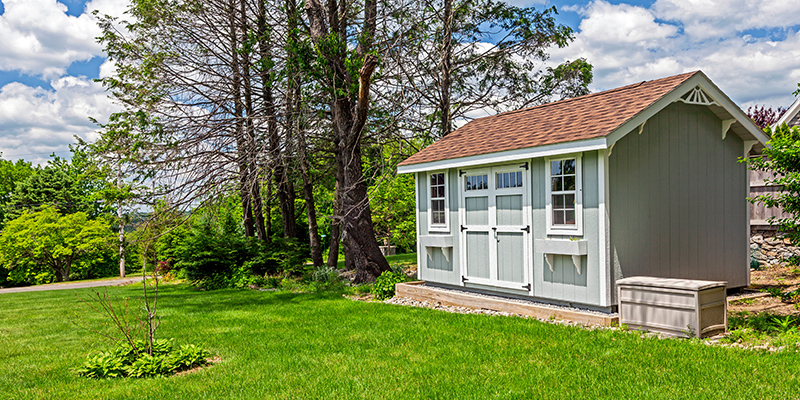What Are The Different Types Of CAI Designations?

Managing a community is no easy feat. While experience working in a similar field helps greatly, certifications take you one step further. But, what are the CAI designations you should know about in the first place?
Browse By Category
Sign up for Our Newsletter
Managing a community is no easy feat. While experience working in a similar field helps greatly, certifications take you one step further. But, what are the CAI designations you should know about in the first place?
What Is CAI? What Are CAI Designations?
The Community Associations Institute (CAI) is a professional organization that offers resources and education to property managers and board members of homeowners associations and condominiums. It is the principal authority when it comes to community association management.
CAI designations are classifications of community managers. These designations are given by the institute and require managers to finish extensive coursework to achieve. Managers must also pass a difficult exam to attain the designation.
But, the work does not stop after a manager obtains a designation. If a manager wishes to maintain their CAI designation, they must meet continuing education requirements, pay an annual maintenance fee, and comply with the CAI Professional Manager Code of Ethics.
The Importance of CAI Designations
Why do designations matter anyway? Shouldn’t the skill come before the title?
CAI designations are important because they add a layer of credibility to the property manager. When an HOA goes through managerial prospects, the board typically reviews their qualifications, experience, and credentials. In doing so, the board can make sure that it hires the best possible manager for the association.
Obtaining a CAI designation proves that a manager possesses the skills and expertise necessary for community association management. It also shows their commitment to the profession. When a manager has a CAI designation, it tells you that they are invested in the career and are in it for the long haul.
Additionally, since managers must pursue continuing education to maintain their designation, you can be sure that they’re always up-to-date on changing laws, trends, and industry practices. They also tend to manage multiple communities. And this experience allows them to form more valuable insights that they can apply to your association.
Beyond that, certified managers gain access to exclusive resources that CAI provides. These resources enable them to better manage associations.
The Types of CAI Designations You Should Know
There are several designations under the CAI umbrella. All of them require managers to have years of experience and pursue continuing education. They must also pass an exam, but each one has a different focus.
Here are the manager designations CAI offers.
1. Certified Manager of Community Associations (CMCA)
The Certified Manager of Community Associations (CMCA) designation requires managers to complete 12 hours of coursework (M-100). From there, candidates must complete a thorough exam covering every about community association management. These include governance, the legal structure of HOAs, amenity management, ethics, and insurance.
Out of all the designations, the CMCA designation is perhaps the most well-known. It is also the most basic designation that CAI offers, with succeeding ones requiring more rigorous training and more extensive experience.
2. Association Management Specialist (AMS)
The Association Management Specialist (AMS) designation is the next step above the CMCA designation. A CMCA manager achieves this designation after having a couple of years of experience under their belt.
To acquire this CAI certification, candidates must pass the same requirements as the CMCA designation (12 hours of coursework and an extensive exam). In addition, they must possess at least 2 years of experience working as a manager and finish at least two more M200-level courses. Currently, there are six M-200 level courses, from M-201 to M-206.
There is also an application fee of $150 for members and $385 for non-members. Redesignation happens every 3 years and comes with an annual maintenance fee of $85 for members and $310 for non-members.
3. Large-Scale Manager (LSM)
Another step above the AMS designation is the Large-Scale Manager (LSM) designation. This CAI certification is only for community association managers who have at least 10 years of community association management experience and at least 5 years of experience managing large-scale associations that meet the following:
- At least 1,000 units or 1,000 acres in the community
- An annual budget of $2 million or higher
- Provides municipal-type services
It is much easier to manage smaller communities because they don’t have a lot of needs, but large communities are a different beast altogether. As such, managers who wish to obtain this credential must have experience managing large communities.
Experience is not the only requirement, though. LSM candidates must also complete CAI’s M-340 course or attend a single CAI LSM workshop. They must also pass an intensive exam.
There is also an application fee of $95 for members and $320 for non-members. Redesignation happens every 3 years and comes with an annual maintenance fee of $55 for members and $280 for non-members.
4. Professional Community Association Manager (PCAM)
The final designation is called the Professional Community Association Manager or PCAM. The PCAM is the highest community association manager designation that CAI offers. This designation is so elusive that only 1% of all managers in the country have been able to attain it.
To achieve the PCAM certification, candidates must have at least 5 years of direct experience managing communities and complete all six courses at the M-200 level. In addition, candidates must go through an exhaustive application process. The process also requires candidates to complete a case study.
There is also an application fee of $195 for members and $430 for non-members. Redesignation happens every 3 years and comes with an annual maintenance fee of $160 for members and $385 for non-members.
Other CAI Designations
In addition to manager designations, CAI also offers other designations. These include:
- College of Community Association Lawyers (CCAL)
- Accredited Association Management Company (AAMC)
- Community Insurance and Risk Management Specialist (CIRMS)
- Reserve Specialist (RS)
Word of Advice
Community association managers who wish to cement their dedication and skills would do well to apply for certifications and climb the ladder of CAI designations. As for HOA boards, it is always better to hire a manager who possesses the right qualifications. At the very least, your board should look for a manager with a CMCA designation.
Finding the right community manager or management company can be difficult. Make the search process easier by browsing through our online directory!
RELATED ARTICLES:
- Should Your HOA Hire a Management Company? – Five Things to Consider
- 12 Qualities And Skills You Need In A Great HOA Manager
- 5 Financial Tips For HOA Managers
Trending Now
Related Article
Sign up for Our Monthly Newsletter
Sign up below for monthly updates on all HOA Resource

















